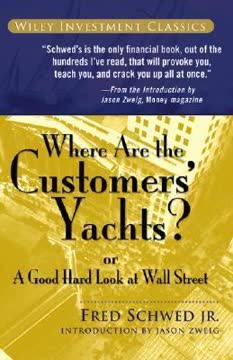ข้อสำคัญ
1. การเก็งกำไรคือแรงขับเคลื่อนพื้นฐานของมนุษย์
"ชีวิตทั้งหมดคือการเก็งกำไร" เจมส์ อาร์. คีน เทรดเดอร์ชาวอเมริกันผู้มีชื่อเสียงในศตวรรษที่ 19 กล่าวไว้ "จิตวิญญาณแห่งการเก็งกำไรเกิดขึ้นพร้อมกับมนุษย์"
การเก็งกำไรในฐานะธรรมชาติของมนุษย์ หนังสือเล่มนี้ชี้ให้เห็นว่าการเก็งกำไรไม่ใช่เพียงกิจกรรมทางการเงินเท่านั้น แต่เป็นลักษณะนิสัยที่ฝังลึกในตัวมนุษย์ ตั้งแต่ยุคโรมันโบราณจนถึงวอลล์สตรีทสมัยใหม่ มนุษย์ถูกขับเคลื่อนด้วยความปรารถนาโดยธรรมชาติที่จะคาดการณ์อนาคตและสร้างผลกำไรจากความไม่แน่นอน
หลักฐานทางประวัติศาสตร์ของสัญชาตญาณการเก็งกำไร:
- พ่อค้าโรมันที่ซื้อขายหุ้นในบริษัทสาธารณะ
- พ่อค้าในยุคกลางที่เก็งกำไรจากหลอดดอกทิวลิป
- การเก็งกำไรที่ดินในยุคอาณานิคมของอเมริกา
- เทรดเดอร์รายวันและนักลงทุนคริปโตในยุคปัจจุบัน
แรงจูงใจทางจิตวิทยา การเก็งกำไรเกิดจากลักษณะพื้นฐานของมนุษย์ เช่น ความหวัง การกล้ารับความเสี่ยง และความปรารถนาที่จะก้าวหน้าอย่างรวดเร็วทางเศรษฐกิจ มันสะท้อนถึงความฝันสากลในการเปลี่ยนทรัพยากรเล็กน้อยให้กลายเป็นความมั่งคั่งอย่างมหาศาลผ่านการคาดการณ์อย่างมีชั้นเชิง
2. ความคลั่งไคล้ในการเก็งกำไรมีรูปแบบทางจิตวิทยาที่คาดเดาได้
"มนุษย์นั้น ถูกกล่าวไว้อย่างดีว่า คิดเป็นฝูง; จะเห็นได้ว่าพวกเขาบ้าคลั่งเป็นฝูง และฟื้นสติอย่างช้า ๆ ทีละคน"
จิตวิทยาฝูงชน ฟองสบู่การเก็งกำไรไม่ใช่เหตุการณ์สุ่ม แต่เป็นการแสดงออกที่คาดเดาได้ของจิตวิทยาร่วมของมนุษย์ โดยมักเกิดจากความหลงผิดร่วมกัน ที่ความคิดอย่างมีเหตุผลของแต่ละบุคคลถูกแทนที่ด้วยความตื่นเต้นหมู่และความคาดหวังที่เกินจริง
ลักษณะทั่วไปของความคลั่งไคล้ในการเก็งกำไร:
- ความเชื่อแพร่หลายใน "ยุคใหม่" แห่งความมั่งคั่ง
- การมีส่วนร่วมที่เพิ่มขึ้นในทุกชนชั้นสังคม
- ราคาสินทรัพย์พุ่งสูงขึ้นอย่างทวีคูณ
- การใช้เลเวอเรจและเครดิตเพิ่มขึ้น
- การล่มสลายอย่างรุนแรงในที่สุด
พลวัตทางอารมณ์ การเก็งกำไรเปลี่ยนจากกิจกรรมทางเศรษฐกิจที่มีเหตุผลกลายเป็นความคลั่งไคล้เกือบเหมือนศาสนา ผู้เข้าร่วมเชื่อว่าตนเป็นส่วนหนึ่งของสิ่งที่ปฏิวัติและหลีกเลี่ยงไม่ได้
3. เทคโนโลยีและนวัตกรรมเป็นแรงขับเคลื่อนฟองสบู่การเก็งกำไร
"นวัตกรรมคือข้อเท็จจริงที่โดดเด่นในประวัติศาสตร์เศรษฐกิจของสังคมทุนนิยม"
ตัวเร่งเทคโนโลยี เทคโนโลยีใหม่ ๆ มักเป็นชนวนให้เกิดความคลั่งไคล้ในการเก็งกำไร ตั้งแต่ทางรถไฟจนถึงอินเทอร์เน็ต ความก้าวหน้าทางเทคโนโลยีสร้างความตื่นเต้น สัญญา และโอกาสในการสร้างความมั่งคั่งอย่างรวดเร็ว
รูปแบบนวัตกรรมในการเก็งกำไร:
- ทางรถไฟในทศวรรษ 1840
- รถยนต์ในทศวรรษ 1920
- หุ้นอินเทอร์เน็ตในทศวรรษ 1990
- คริปโตเคอร์เรนซีในทศวรรษ 2010
กลไกการเก็งกำไร นวัตกรรมทางเทคโนโลยีสร้างความไม่แน่นอนเกี่ยวกับศักยภาพในอนาคต ทำให้ผู้เก็งกำไรสามารถคาดการณ์มูลค่าที่สูงเกินจริงแก่เทคโนโลยีเกิดใหม่ ซึ่งมักเกินกว่ามูลค่าทางเศรษฐกิจที่แท้จริง
4. สภาพการเมืองและเศรษฐกิจเป็นเชื้อเพลิงให้เกิดการเก็งกำไรเกินพอดี
"รัฐบาลล้มเหลวในการหาจุดสมดุลระหว่างสัญชาตญาณเสรีทางเศรษฐกิจและความรังเกียจทางศีลธรรมต่อการเก็งกำไร"
สภาพแวดล้อมทางกฎระเบียบ ฟองสบู่การเก็งกำรมักเกิดขึ้นในช่วงที่นโยบายการเงินผ่อนคลาย การกำกับดูแลของรัฐน้อย และความเชื่อมั่นทางเศรษฐกิจสูง ทัศนคติแบบปล่อยให้ตลาดทำงานเองสร้างพื้นที่อุดมสมบูรณ์สำหรับการเก็งกำไรเกินขอบเขต
เงื่อนไขสำคัญที่เอื้ออำนวย:
- อัตราดอกเบี้ยต่ำ
- การกำกับดูแลทางการเงินน้อย
- ความเชื่อทางวัฒนธรรมในเรื่องการเติบโตทางเศรษฐกิจไม่จำกัด
- การสนับสนุนทางการเมืองต่ออุดมการณ์ตลาดเสรี
ความร่วมมือทางการเมือง รัฐบาลมักส่งเสริมการเก็งกำไรโดยไม่ตั้งใจผ่านนโยบายการเงิน โครงสร้างภาษี และความมุ่งมั่นทางปรัชญาต่อเสรีภาพทางเศรษฐกิจ
5. ตลาดถูกขับเคลื่อนด้วยอารมณ์ของมนุษย์ ไม่ใช่การคำนวณอย่างมีเหตุผล
"การเก็งกำไรคือความพยายามที่อาจไม่สำเร็จในการเปลี่ยนเงินเล็กน้อยให้กลายเป็นมากมาย"
รากฐานทางจิตวิทยา ตลาดการเงินไม่ใช่ระบบที่มีเหตุผล แต่เป็นระบบนิเวศทางอารมณ์ที่ขับเคลื่อนด้วยจิตวิทยามนุษย์ เช่น ความกลัว ความโลภ ความหวัง และพฤติกรรมตามฝูง
พลวัตทางอารมณ์ของตลาด:
- ความมั่นใจเกินไปในช่วงตลาดขาขึ้น
- ความตื่นตระหนกในช่วงตลาดตกต่ำ
- แนวโน้มการตามความเห็นของฝูงชน
- ความไวต่อข่าวลือและการบิดเบือน
ข้อจำกัดทางปัญญา นักลงทุนมักไม่สามารถตัดสินใจอย่างมีเหตุผลล้วน ๆ ได้ แต่ถูกชี้นำโดยอคติทางจิตวิทยาและปฏิกิริยาทางอารมณ์
6. รัฐบาลมักไม่สามารถควบคุมการเก็งกำไรได้อย่างมีประสิทธิภาพ
"การแทรกแซงโดยตรงของเราต่อความคลั่งไคล้ในการเก็งกำไรทางรถไฟดูเหมือนจะเป็นไปไม่ได้"
ความไร้ประสิทธิภาพของการกำกับดูแล หลักฐานทางประวัติศาสตร์ชี้ให้เห็นว่าความพยายามของรัฐบาลในการควบคุมการเก็งกำไรผ่านกฎหมายมักไม่ประสบผลและบางครั้งกลับส่งผลเสีย
ความท้าทายในการกำกับดูแล:
- ความยากลำบากในการกำหนดขอบเขตของการเก็งกำไร
- ความซับซ้อนทางการเมืองและเศรษฐกิจ
- นวัตกรรมทางการเงินที่รวดเร็ว
- การต่อต้านจากอุตสาหกรรมการเงิน
ผลกระทบที่ไม่คาดคิด ความพยายามควบคุมการเก็งกำไรมักนำไปสู่การพัฒนาวิธีการที่ซับซ้อนขึ้นในการหลีกเลี่ยงข้อจำกัด ส่งผลให้เกิดเครื่องมือทางการเงินที่ซับซ้อนมากขึ้น
7. เทคโนโลยีใหม่สร้างโอกาสใหม่ในการเก็งกำไร
"มาตรฐานข้อมูลได้แทนที่มาตรฐานทองคำเป็นฐานของการเงินโลก"
การเปลี่ยนแปลงทางเทคโนโลยี ความก้าวหน้าทางการสื่อสารและเทคโนโลยีสารสนเทศสร้างโอกาสใหม่ ๆ ในการเก็งกำไรและเปลี่ยนแปลงตลาดการเงินอย่างต่อเนื่อง
ตัวช่วยในการเก็งกำไรทางเทคโนโลยี:
- โทรเลข
- โทรศัพท์
- เครือข่ายคอมพิวเตอร์
- อินเทอร์เน็ต
- แพลตฟอร์มคริปโตเคอร์เรนซี
วิวัฒนาการของตลาด คลื่นเทคโนโลยีแต่ละระลอกนำเสนอเครื่องมือใหม่สำหรับการเก็งกำไร เปิดโอกาสให้ผู้คนเข้าร่วมตลาดได้มากขึ้นและสร้างผลิตภัณฑ์การลงทุนรูปแบบใหม่
8. การบิดเบือนข้อมูลและการทุจริตเป็นเรื่องปกติในช่วงเวลาการเก็งกำไร
"ตลาดหลักทรัพย์กลายเป็นคาสิโนที่ได้รับการยกย่อง โดยที่อัตราต่อรองเอียงไปทางฝ่ายผู้เล่นภายนอกที่กระตือรือร้น"
การทุจริตในระบบ ช่วงเวลาการเก็งกำไรมักมีลักษณะของการบิดเบือนตลาด การซื้อขายภายใน และการกระทำทุจริตอย่างแพร่หลาย
เทคนิคการบิดเบือน:
- การรวมกลุ่มหุ้น
- การเผยแพร่ข่าวลือเท็จ
- การซื้อขายภายใน
- การให้ข้อมูลตลาดที่ผิดพลาดโดยเจตนา
- การออกแบบเครื่องมือทางการเงินที่ซับซ้อน
การล่มสลายทางจริยธรรม ในช่วงความคลั่งไคล้ในการเก็งกำไร ขอบเขตทางจริยธรรมแบบดั้งเดิมถูกทำลาย ผู้เข้าร่วมมักให้ความสำคัญกับผลกำไรมากกว่าศีลธรรม
9. การเก็งกำไรสะท้อนภาพรวมของสังคมและวัฒนธรรม
"จินตนาการในประเทศนี้อยู่ในอนาคตมากกว่าที่จะอยู่ในอดีต"
กระจกสะท้อนสังคม ช่วงเวลาการเก็งกำไรเผยให้เห็นทัศนคติทางวัฒนธรรมที่ลึกซึ้งเกี่ยวกับความเสี่ยง โอกาส และการเคลื่อนย้ายทางสังคม
ข้อสังเกตทางวัฒนธรรมจากการเก็งกำไร:
- ทัศนคติต่อความก้าวหน้าทางเศรษฐกิจ
- ความชื่นชอบความเสี่ยง
- ความเชื่อในโอกาสของแต่ละบุคคล
- ความมองโลกในแง่ดีต่อเทคโนโลยี
ภูมิทัศน์ทางจิตวิทยา การเก็งกำไรเปิดหน้าต่างสู่ความหวัง ความกลัว และความฝันร่วมกันในการเปลี่ยนแปลงทางเศรษฐกิจ
10. นวัตกรรมทางการเงินเปิดทางให้การเก็งกำไรที่ซับซ้อนมากขึ้น
"ตราสารอนุพันธ์คือวัตถุดิบอุตสาหกรรมที่สร้างขึ้นเพื่อรับมือกับความไม่แน่นอน"
วิศวกรรมการเงิน นวัตกรรมทางการเงินอย่างต่อเนื่องสร้างกลไกที่ซับซ้อนขึ้นสำหรับการเก็งกำไรและการถ่ายโอนความเสี่ยง
ความก้าวหน้าของนวัตกรรม:
- สัญญาฟิวเจอร์สพื้นฐาน
- ตราสารอนุพันธ์ที่ซับซ้อน
- การซื้อขายด้วยอัลกอริทึม
- คริปโตเคอร์เรนซี
- เครื่องมือทางการเงินบนบล็อกเชน
วัฏจักรความซับซ้อน คลื่นนวัตกรรมทางการเงินแต่ละระลอกสร้างโอกาสใหม่ในการเก็งกำไร พร้อมกับเพิ่มความซับซ้อนของตลาดและความเสี่ยงระบบ
11. วัฏจักรของการเฟ้อและฟองสบู่เป็นสิ่งที่หลีกเลี่ยงไม่ได้ในระบบทุนนิยม
"ความก้าวหน้าในวิทยาศาสตร์และวิศวกรรมเป็นแบบสะสม แต่ในทางการเงินเป็นแบบวัฏจักร"
จังหวะทางเศรษฐกิจ ระบบเศรษฐกิจทุนนิยมมีการสลับกันระหว่างช่วงขยายตัวและหดตัว โดยการเก็งกำไรมีบทบาทสำคัญในวัฏจักรเหล่านี้
ลักษณะวัฏจักร:
- รูปแบบที่คาดเดาได้ของความตื่นเต้นและความตื่นตระหนก
- ความคลั่งไคล้ในการเก็งกำไรที่เกิดซ้ำ
- ปฏิกิริยาทางจิตวิทยาของมนุษย์ที่สม่ำเสมอ
- ความผันผวนของตลาดที่เป็นเนื้อแท้
ธรรมชาติของระบบ วัฏจักรเฟ้อและฟองสบู่ไม่ใช่ความผิดปกติ แต่เป็นลักษณะพื้นฐานของระบบเศรษฐกิจทุนนิยมอย่างแท้จริง
อัปเดตล่าสุด:
FAQ
What's Devil Take the Hindmost about?
- Exploration of speculation: The book provides a historical overview of financial speculation, tracing its evolution from ancient Rome to modern times. It examines how speculation has influenced economies and markets throughout history.
- Key historical events: Edward Chancellor discusses significant speculative bubbles, such as the South Sea Bubble, the Railway Mania, and the 1929 stock market crash, analyzing the causes and consequences of these events.
- Psychological and economic factors: The narrative connects historical instances to contemporary financial practices, critiquing the behavior of market participants and emphasizing the psychological aspects of speculation.
Why should I read Devil Take the Hindmost?
- Insightful historical context: The book provides a comprehensive understanding of how historical financial crises have shaped current economic practices, connecting past events to present-day financial behaviors.
- Lessons on human behavior: Chancellor delves into the psychology of investors and speculators, offering insights into why people make irrational financial decisions, which can help readers navigate their own investment choices.
- Cautionary tale: It serves as a warning about the dangers of speculation and the potential consequences of financial excess, encouraging readers to think critically about their investment strategies.
What are the key takeaways of Devil Take the Hindmost?
- Speculation vs. investment: The book emphasizes the thin line between speculation and investment, highlighting that speculation is often driven by emotions like greed and fear.
- Role of government: Chancellor discusses how government actions can stimulate or suppress speculative behavior, illustrating the importance of regulation in maintaining market stability.
- Psychology of markets: The book explores the psychological aspects of speculation, including how crowd behavior and mass delusion can lead to financial manias and subsequent crashes.
What are the best quotes from Devil Take the Hindmost and what do they mean?
- "Men, it has been well said, think in herds; it will be seen that they go mad in herds." This quote reflects the idea that collective behavior can lead to irrational decision-making in financial markets, resulting in speculative bubbles.
- "The spirit of speculation is born with men." This suggests that the tendency to speculate is an inherent part of human nature, influencing economic behavior throughout history.
- "The most expensive words in the English language are 'this time it's different.'" This quote warns against the hubris of believing that current market conditions are unique and immune to the historical patterns of speculation and collapse.
How does Devil Take the Hindmost explain the relationship between speculation and financial crises?
- Historical patterns: Chancellor illustrates that speculative manias often precede financial crises, as seen in historical examples like the South Sea Bubble and the Tulip Mania.
- Government involvement: The book discusses how government policies can exacerbate or mitigate speculative behavior, highlighting the need for regulatory frameworks to prevent crises.
- Cycle of speculation: The author describes a cyclical pattern where periods of speculation are followed by crashes, leading to a temporary loss of confidence in markets.
What is the definition of speculation according to Devil Take the Hindmost?
- Attempt to profit: Speculation is defined as an attempt to profit from changes in market prices, often involving a willingness to forgo current income for potential capital gains.
- Active vs. passive: The book contrasts speculation with investment, noting that speculation is generally more active and involves a higher degree of risk.
- Psychological factors: Speculation is influenced by psychological factors, including crowd behavior and emotional responses to market conditions.
What role does government play in speculation according to Devil Take the Hindmost?
- Regulatory influence: The book argues that government policies can either encourage or suppress speculative behavior, depending on the regulatory environment.
- Historical examples: Chancellor provides historical examples where government actions have led to speculative manias, illustrating the consequences of poor oversight.
- Need for caution: The author warns that governments must be cautious in their approach to speculation, as excessive intervention can lead to unintended consequences.
How does Devil Take the Hindmost address the psychology of speculation?
- Emotional drivers: The book emphasizes that speculation is often driven by emotions such as greed and fear, which can cloud judgment and lead to irrational investment decisions.
- Crowd behavior: Chancellor discusses how crowd psychology can amplify speculative behavior, as individuals are influenced by the actions and sentiments of others.
- Self-fulfilling prophecies: The author notes that speculators can create their own realities through collective actions, leading to phenomena like market bubbles.
What is the significance of the South Sea Bubble in Devil Take the Hindmost?
- Historical example of speculation: The South Sea Bubble serves as a key historical example of how speculation can lead to financial disaster.
- Lessons learned: The author uses the South Sea Bubble to highlight the importance of regulation and oversight in financial markets.
- Impact on public perception: The bubble significantly affected public perception of financial markets and speculation, leading to calls for reform.
How does Devil Take the Hindmost relate to the Japanese Bubble Economy?
- Case study of zaitech: Chancellor examines the Japanese Bubble Economy as a case study of zaitech, or financial engineering, where companies engaged in speculative practices to boost profits.
- Government involvement: The book discusses the role of the Japanese government and financial institutions in fostering the bubble through lax regulations.
- Consequences of the bubble: The collapse of the Japanese Bubble Economy serves as a warning about the risks of excessive speculation.
What are the psychological factors influencing speculation discussed in Devil Take the Hindmost?
- Herd mentality: Chancellor emphasizes that investors often follow the crowd, leading to irrational market behavior and the formation of bubbles.
- Fear and greed: The book discusses how fear and greed drive investor behavior, often leading to extreme market fluctuations.
- Cognitive biases: The author highlights various cognitive biases that affect decision-making in financial markets, such as overconfidence and loss aversion.
What are the implications of speculation for modern financial markets as discussed in Devil Take the Hindmost?
- Increased volatility: The book suggests that speculation contributes to increased volatility in financial markets, making them more susceptible to sudden crashes.
- Regulatory challenges: Chancellor highlights the challenges regulators face in managing speculative behavior, particularly in the context of complex financial instruments.
- Long-term economic impact: The author warns that unchecked speculation can lead to long-term economic instability, as seen in historical examples.
รีวิว
Devil Take the Hindmost ได้รับคำชื่นชมอย่างกว้างขวางในฐานะหนังสือที่รวบรวมประวัติศาสตร์การเก็งกำไรทางการเงินอย่างครบถ้วน ตั้งแต่ยุคโรมันโบราณจนถึงทศวรรษ 1990 ผู้อ่านต่างประทับใจกับการเล่าเรื่องที่น่าติดตามของ Chancellor พร้อมการวิเคราะห์เชิงลึกเกี่ยวกับรูปแบบซ้ำ ๆ ที่เกิดขึ้นในฟองสบู่ตลาด หนังสือเล่มนี้ได้รับการยกย่องในเรื่องการบรรยายรายละเอียดของเหตุการณ์เก็งกำไรที่มีชื่อเสียง เช่น ฟองสบู่ดอกทิวลิปในเนเธอร์แลนด์ และฟองสบู่ South Sea แม้ว่าบางคนอาจรู้สึกว่าการเขียนค่อนข้างแน่นและซ้ำซากในบางครั้ง แต่โดยรวมแล้ว หนังสือเล่มนี้ถือเป็นงานอ่านที่จำเป็นสำหรับผู้ที่ต้องการเข้าใจจิตวิทยาตลาดและธรรมชาติที่เป็นวัฏจักรของวิกฤตการณ์ทางการเงินอย่างแท้จริง
Similar Books















